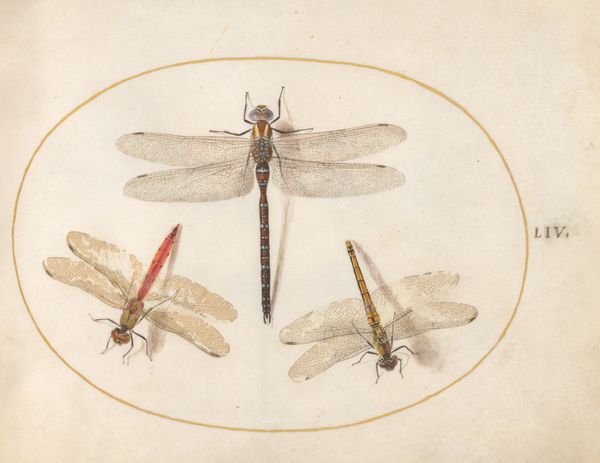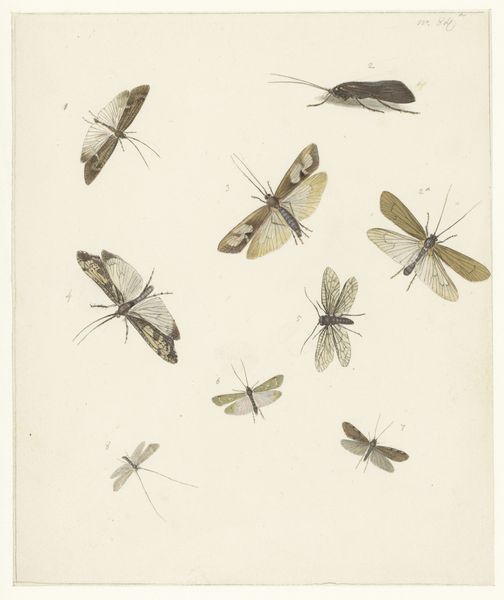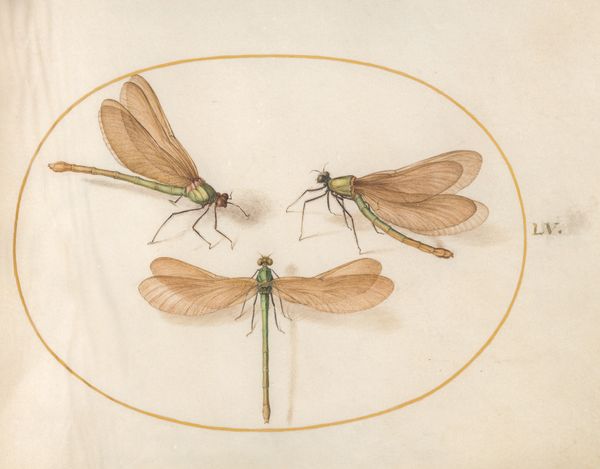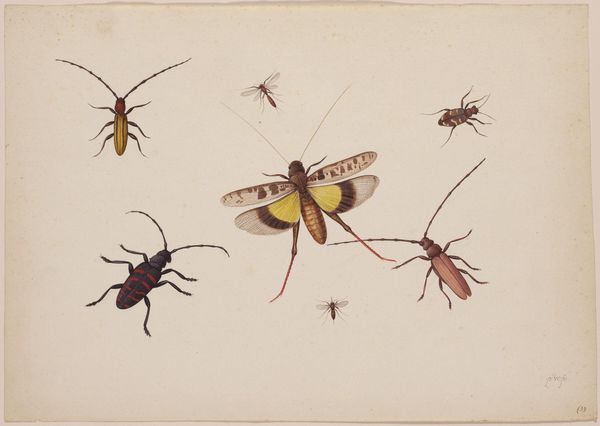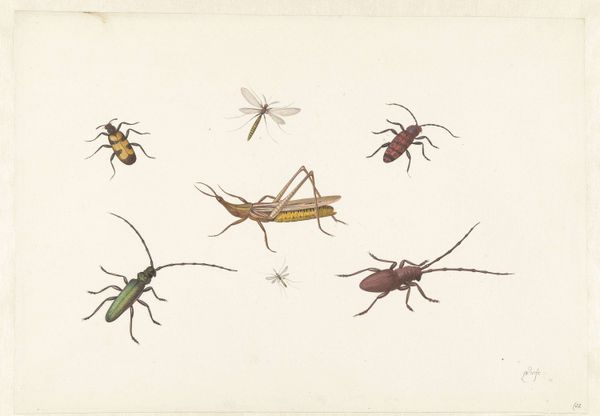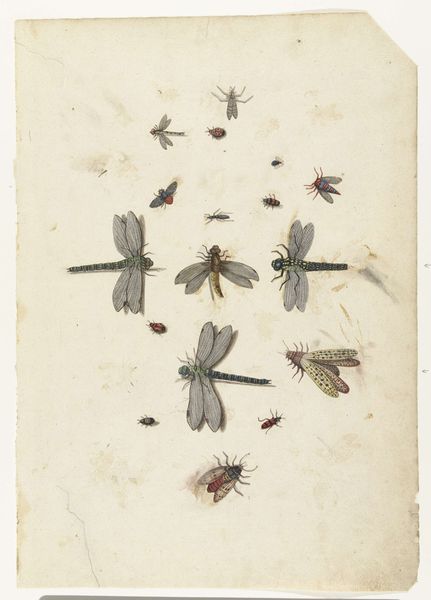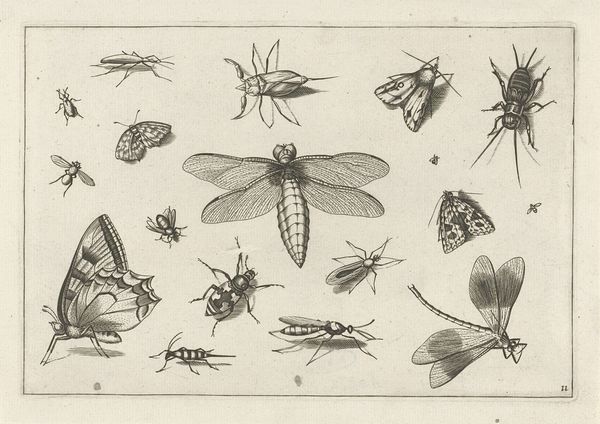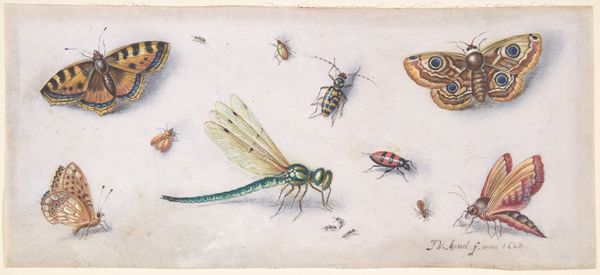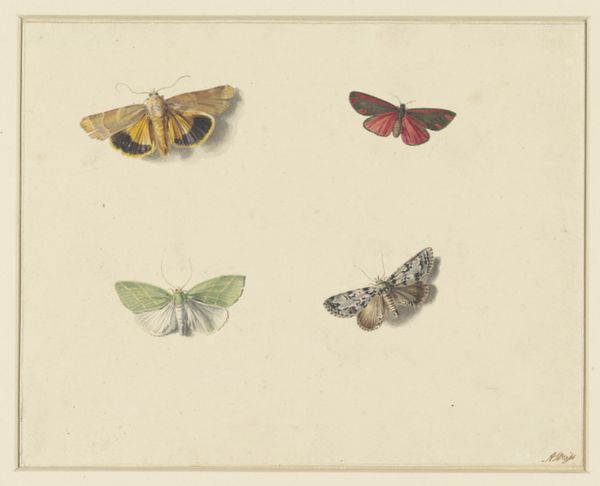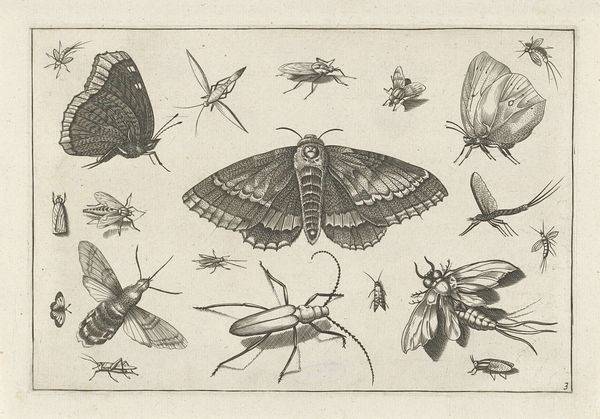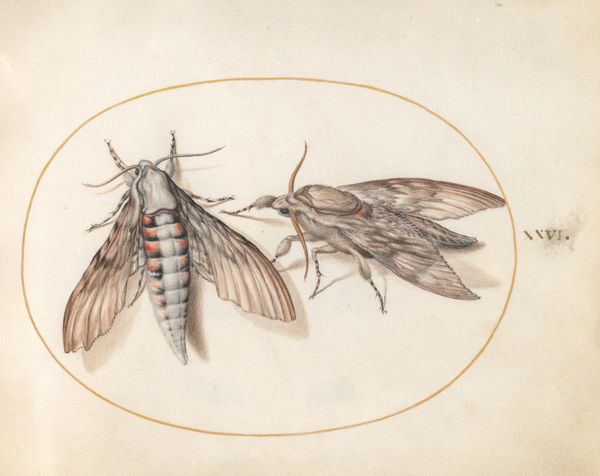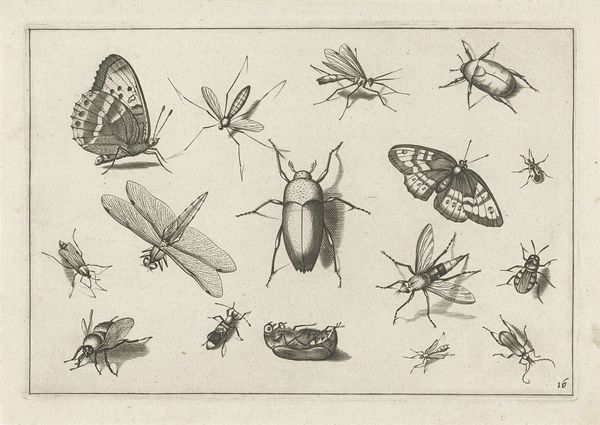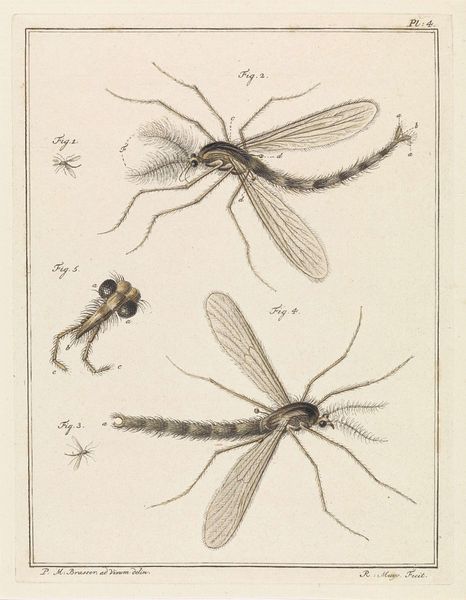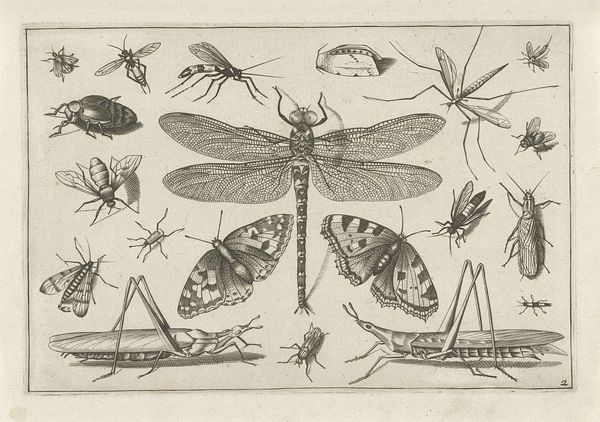
drawing, watercolor
#
drawing
#
cool toned green
#
impressionism
#
green tone
#
curved letter used
#
watercolor
#
green background
#
muted green
#
watercolour illustration
#
green and neutral
#
naturalism
#
botanical art
#
watercolor
#
warm toned green
Dimensions: height 140 mm, width 189 mm
Copyright: Rijks Museum: Open Domain
Editor: Here we have Albertus Steenbergen’s "Studie van twee libellen," or "Study of Two Dragonflies," created sometime between 1824 and 1900. It’s a delicate watercolor and drawing. I’m struck by the realism – how meticulously the artist captured the dragonfly's form. How do you interpret this work? Curator: It’s fascinating how Steenbergen uses the guise of naturalism, characteristic of the period, to make these dragonflies appear almost like specimens under a microscope. But what if we consider the cultural context? The 19th century witnessed a surge in scientific exploration alongside burgeoning colonial expansion. How might this drive for categorization and control reflect a broader societal impulse to dominate the natural world, and perhaps, by extension, non-European populations? Editor: That’s a powerful interpretation. So, you’re saying the act of studying and depicting nature can also be seen as an act of asserting control? Curator: Precisely. Consider how these insects are presented. They're isolated, devoid of habitat, pinned down, metaphorically if not literally, for observation. Is this a neutral act of scientific documentation, or a demonstration of power? Furthermore, the availability of these images may not have been the same across society, thus influencing societal attitudes. How would access change opinions towards the environment in our current climate crisis? Editor: It’s eye-opening to think about naturalism with those socio-political implications in mind. I initially saw only the beauty of the illustration, but I now also see a complex commentary on humanity’s relationship with nature. Curator: Exactly. Art serves as an archive, capturing not just appearances, but the complex and often contradictory ideologies of its time. Editor: I will never look at naturalistic illustrations the same way! Thank you.
Comments
No comments
Be the first to comment and join the conversation on the ultimate creative platform.
